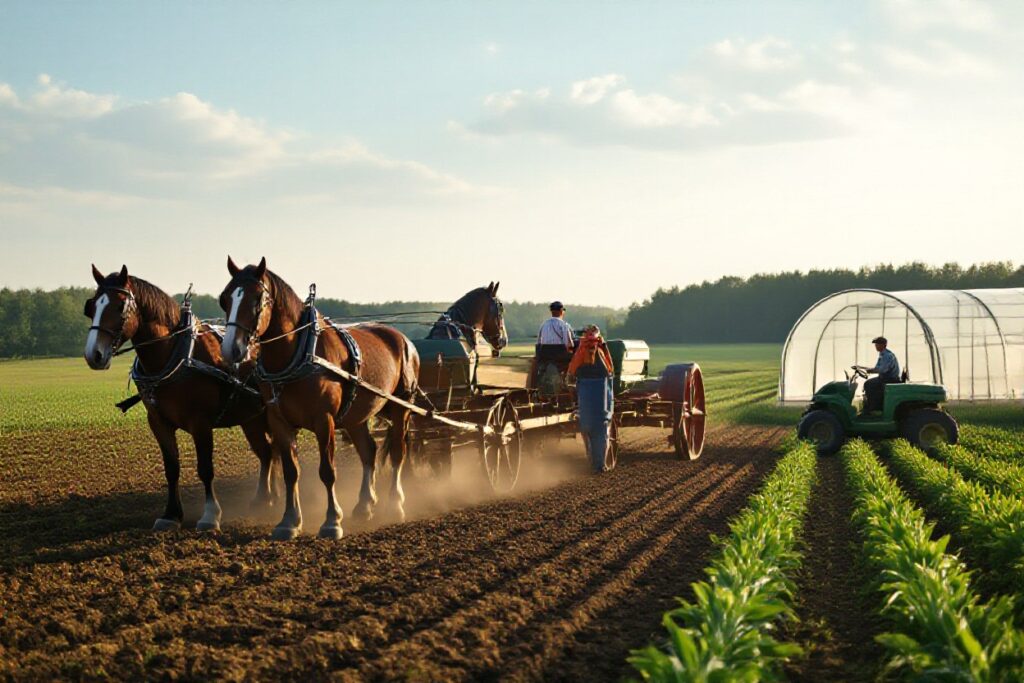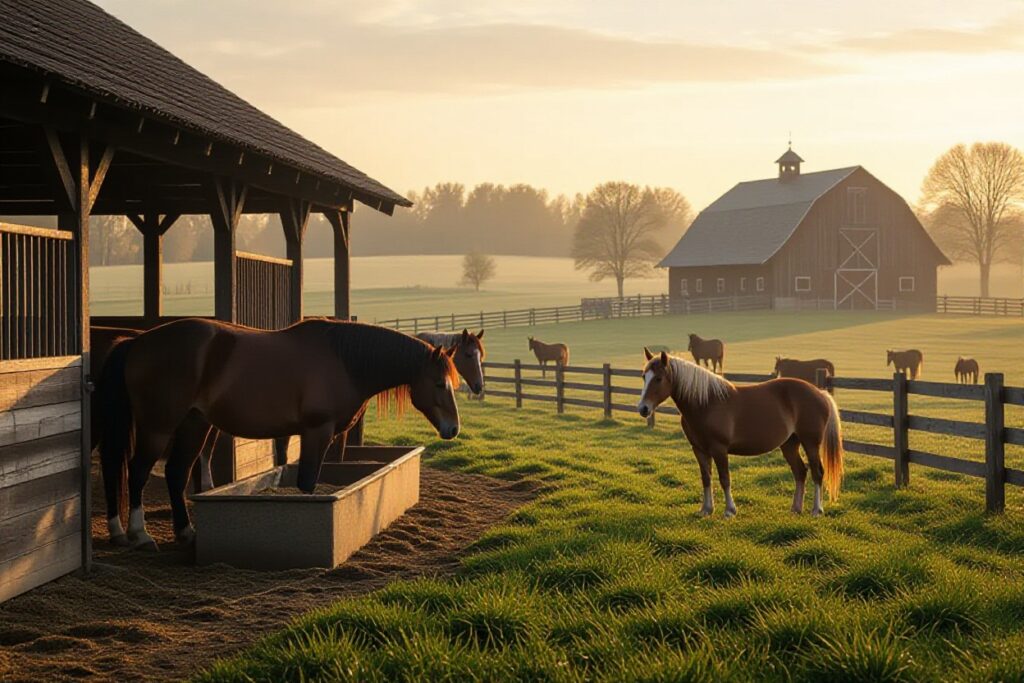Overseeing proper management of horse waste is crucial for not only maintaining a clean and healthy environment for your horses but also for the overall ecosystem. In this informative guide, we will discuss effective techniques that you can implement to safely handle and dispose of horse waste on your property. By following these best practices, you can minimize environmental impacts and create a more sustainable solution for managing horse waste.


Identifying the Problem
The Environmental Impact of Horse Waste
Environmental issues related to horse waste can have a significant impact on land, water, and air quality. **Improper disposal of horse waste can lead to nutrient runoff, contaminating water sources and causing algal blooms.** This can harm aquatic life and disrupt the balance of the ecosystem. Furthermore, **excessive accumulation of horse waste can contribute to greenhouse gas emissions such as methane, exacerbating climate change.** It is crucial to address these environmental concerns by implementing proper waste management practices.
Health Risks Associated with Improper Waste Management
Any mishandling of horse waste can pose serious health risks to both humans and animals. **Exposure to pathogens present in horse manure, such as Salmonella and E. coli, can lead to illnesses like gastrointestinal infections and respiratory problems.** Inadequate waste management practices can also attract disease-carrying pests like flies and rodents, increasing the risk of disease transmission. **Proper disposal and management of horse waste are crucial to prevent these health hazards from occurring.**
Problem: **It is crucial to address the issue of improper horse waste management to safeguard the environment and public health**. By implementing **proper waste management techniques**, you can significantly reduce **the negative impact of horse waste on the environment and minimize health risks associated with exposure to pathogens**. Be sure to follow **best practices for composting, spreading, and disposing of horse waste** to create a safer and healthier environment for both humans and horses.
Manure Management Strategies
It is necessary to have effective manure management strategies in place to ensure the proper handling and disposal of horse waste. By implementing these strategies, you can reduce environmental impact and maintain a clean and healthy environment for both your horses and the surrounding area.
Composting Horse Manure
With composting, you can efficiently manage horse manure by creating a controlled environment where microorganisms break down the waste into valuable compost. Composting not only reduces the volume of manure but also produces a nutrient-rich soil amendment that can be used in gardens or on pastures. Proper aeration, moisture, and carbon-to-nitrogen ratio are necessary factors to consider for successful composting of horse manure.
Anaerobic Digestion
Digestion, Anaerobic digestion is another method for managing horse manure that involves breaking down organic matter in the absence of oxygen. Microorganisms break down the waste and produce biogas, a renewable energy source that can be used for heating or electricity. Anaerobic digestion can help reduce greenhouse gas emissions and odors associated with manure storage.
For instance, you can set up a biogas digester on your farm to convert horse manure into biogas. This not only helps you manage waste but also provides a sustainable energy source for your operations.
Vermicomposting
Strategies, Vermicomposting is a method that uses earthworms to break down organic materials, including horse manure, into a nutrient-rich compost known as vermicompost. The worms help aerate the compost pile and accelerate the decomposition process. Vermicomposting is a cost-effective and environmentally friendly way to manage horse manure while producing a valuable soil amendment.
Manure, By using a combination of these manure management strategies, you can effectively handle and repurpose horse waste while minimizing its environmental impact. Whether it’s composting, anaerobic digestion, or vermicomposting, each method offers unique benefits for managing horse manure sustainably.

Effective Disposal Methods
Land Application
Not all horse waste disposal methods involve removal from your property. Land application is a common technique where you can spread horse manure on designated areas of your land. To effectively manage this method, it’s crucial to rotate the application areas to prevent soil overloading and maximize nutrient absorption by the plants.
Composting Toilets
Methods involve converting horse manure and stall bedding into a useful compost material. This process allows the waste to decompose naturally, producing a nutrient-rich soil amendment that you can use in your gardens or landscaping. Composting toilets are eco-friendly and can significantly reduce the volume of waste that needs to be disposed of.
This method is not only beneficial for waste management but also helps in recycling nutrients back into the soil, promoting sustainable practices on your property.
Incineration
Methods like incineration offer a quick and efficient way to dispose of horse waste. By burning the waste at high temperatures, incineration reduces the volume of waste significantly and kills harmful pathogens. For instance, incineration can be an ideal option if you have limited space or need to manage waste on a larger scale.

Reducing Waste Generation
Many techniques can be implemented to reduce the amount of waste generated by your horses.
Dietary Changes to Minimize Waste
Waste generation can be minimized by making dietary changes for your horses. By ensuring that your horses are receiving a balanced diet appropriate for their age, weight, and activity level, you can reduce the amount of undigested feed that passes through their system. This will not only improve your horse’s health but also decrease the amount of waste they produce.
Implementing Efficient Feeding Practices
Dietary efficiency plays a significant role in waste reduction. By providing smaller, more frequent meals and using slow-feeders, you can help your horses digest their food more efficiently, leading to less waste production. Additionally, feeding your horses in a designated area can prevent hay and feed from being trampled or soiled, further reducing waste.
Reducing waste generation can also be achieved by making changes to your bedding materials.
Reducing Bedding Materials
Switching to more absorbent bedding materials such as pelleted bedding or hemp can help reduce the amount of bedding you need to use, therefore decreasing the overall waste produced. Additionally, regularly cleaning and maintaining your horse’s bedding can extend its lifespan and reduce the frequency at which you need to replace it.
Manure Handling and Storage
Designing Effective Manure Storage Facilities
Keep in mind that proper management of horse manure is crucial for maintaining a healthy and safe environment for your horses. Designing effective manure storage facilities is crucial in preventing water contamination and minimizing odors. When designing your storage facility, consider factors such as location, size, and construction materials to ensure efficient and environmentally-friendly waste management.
Safe Handling and Transportation of Manure
Handling and transporting horse manure requires careful planning and attention to detail. Handling manure improperly can lead to environmental contamination and pose health risks to you and your animals. Implementing proper storage and disposal practices is key to preventing pollution and maintaining a clean and sustainable environment.
With the right tools and techniques, you can safely handle and transport horse manure to designated areas for composting or disposal. Remember to always wear protective gear, such as gloves and masks, when working with manure to reduce the risk of exposure to harmful pathogens.
Regular Cleaning and Maintenance
An effective waste management plan includes regular cleaning and maintenance of manure storage facilities. By routinely removing accumulated manure, you can prevent the buildup of harmful bacteria and reduce the risk of contamination. Make sure to inspect your storage facility regularly for any signs of leaks or structural damage that may compromise its integrity.
Storage areas should be cleaned and disinfected regularly to maintain a hygienic environment for your horses. Implementing a schedule for cleaning and maintenance tasks will help you stay on top of waste management and ensure a healthy living space for your animals.
Regulatory Compliance and Best Practices
Now, let’s explore into the importance of regulatory compliance and best practices when it comes to managing horse waste. By adhering to local regulations, industry standards, and implementing effective record-keeping and monitoring practices, you can ensure that you are responsibly managing horse waste while minimizing environmental impact.
Local Regulations and Guidelines
On your horse farm, it is crucial to familiarize yourself with local regulations and guidelines regarding manure management. These regulations may dictate how far manure piles should be from water sources, the proper disposal methods, and frequency of removal. Following these guidelines not only helps you avoid fines but also protects the surrounding environment from contamination.
Industry Standards for Manure Management
With the growing concern for environmental sustainability, the horse industry has developed industry standards for manure management. These standards recommend practices such as composting manure to reduce pathogens, controlling runoff to prevent water pollution, and incorporating manure into soil as a natural fertilizer. By following these standards, you can contribute to a healthier environment for your horses and the surrounding ecosystem.
It is necessary to note that the industry standards for manure management are continuously evolving as new research and technologies emerge. Staying informed about these developments and implementing best practices will help you stay ahead in environmentally responsible horse waste management.
Record Keeping and Monitoring
It is important to establish a robust record-keeping system to track the quantity of manure produced, disposal methods, and any treatments applied. This information not only helps you stay compliant with regulations but also allows you to assess the effectiveness of your waste management practices over time. Additionally, regular monitoring of manure storage areas and application sites can help identify potential issues early and prevent environmental harm.
Industry standards emphasize the significance of record-keeping and monitoring in ensuring effective horse waste management. By maintaining detailed records and conducting regular monitoring, you can demonstrate your commitment to environmental stewardship and make informed decisions to improve your waste management practices.
To wrap up
Drawing together the various techniques for managing horse waste outlined in this article, it is clear that responsible waste management is crucial for the health of both horses and the environment. By utilizing methods such as composting, spreading out manure, and regularly cleaning stalls, you can reduce the negative impact of horse waste on water sources and surrounding ecosystems. Note, proper waste management not only benefits the environment but also ensures the well-being of your horses by minimizing the risk of disease and parasites.
FAQ
Q: Why is managing horse waste important?
A: Proper management of horse waste helps to prevent water contamination, reduce flies and pests, and maintain a clean and healthy environment for both horses and humans.
Q: What are some techniques for managing horse waste?
A: Some techniques for managing horse waste include composting, spreading manure in fields, using manure as fertilizer, and proper storage and disposal of waste.
Q: How can composting help in managing horse waste?
A: Composting horse waste can help to break down the organic matter, reduce odor, and create a nutrient-rich soil conditioner that can be used in gardens and landscaping.
Q: Is it safe to spread manure in fields?
A: Yes, spreading manure in fields can be safe and beneficial when done properly. It helps to recycle nutrients back into the soil and improve soil fertility, but it is important to follow guidelines to prevent water pollution.
Q: What should be considered when storing and disposing of horse waste?
A: When storing and disposing of horse waste, it is important to keep it away from water sources, use proper containers to prevent runoff, and consider local regulations for waste management and disposal.










